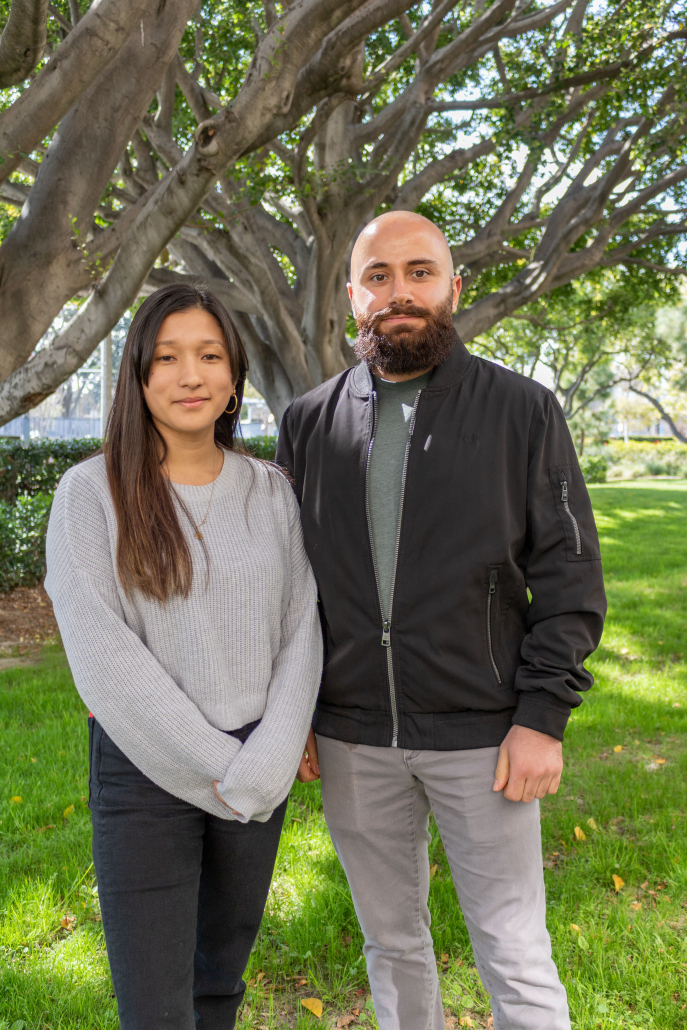Gould students Help bring Ukrainian family to U.S.

When the first explosions rang in Kyiv as Russia began invading Ukraine last February, Petro knew he needed to get his family to safety. Living conditions became difficult, with closed shops, constant air raids and blackouts restricting access to water and electricity. Petro quit his work as an internal auditor for a charity foundation, and he and his family gathered their belongings and drove 15 hours to the border with Romania.
“The main reason we left was the safety of our children,” Petro said, speaking through an interpreter. (Petro requested to be quoted under a pseudonym for this article, fearing retaliation should he and his family be forced to return to Ukraine under Russian occupation.) “Our older daughter is five years old and obviously she couldn’t attend kindergarten. We didn’t want her to hear explosions. We didn’t want her to witness the horrors of this war.”
In April, President Joe Biden announced the launch of Uniting for Ukraine, a program allowing Ukrainian citizens and their immediate family members to reside in the United States under temporary parole, provided they had a sponsor.
But it was a long time before Petro was eligible to apply for the program. In the summer, Petro finally found sponsors through Welcome.US, the self-described “largest coalition in refugee resettlement history,” which initially served Afghan refugees but has since expanded to include Ukraine and Latin America. In October, Home for Refugees, an Orange County-based nonprofit, put Petro in touch with USC Gould School of Law students Uma Fry Demetria and Harut Margaryan and Visiting Clinical Professor of Law Henna Pithia, who helped Petro with the immigration process.
“After I got connected with Uma, Harut and Professor Pithia, everything seemed to be very solid, reliable, and they gave tremendous support in their advice and help with documents,” Petro said. “We had Zoom meetings with the University team and they were very nice to explain to me every step.”
Margaryan, a graduate student studying law, said there were challenges involved in communicating with Petro and his family due to the conditions in Ukraine.
“Before they came here, we got to know their story and spoke to them about logistics,” Margaryan said. “We had some difficulties with potentially not being able to join the Zoom call because there were some bomb threats and they had to go into bunkers, or they didn’t have electricity.”
Margaryan, himself an immigrant from Armenia, felt the urgency in bringing the family to the United States as soon as possible.
“I think it’s important to find a quick way to help them because of the war that’s going on and the dangers posed to them,” Margaryan said. “It was really exciting to finish the work and see them come here so quickly thereafter. For them to have safety and stability here is probably the best part.”
Demetria, a graduate student studying law, said going through the process with Petro and his family was like living it with them, day by day.
“We were able to build a close relationship and watch this family go through what they were going through. A lot of times it was sort of like a waiting game,” Demetria said. “For example, we had to wait for them to be able to get their bank statements to include it in the application, but the banks were closed in Ukraine because there were air raids going on.”
Herself an immigrant from Nepal, Demetria said her own experience made her more passionate about human rights work and helping others navigate a pathway to citizenship.
“Being able to [help Petro and his family] live a life in safety and have their children be able to go to school again and not be in constant fear for their lives — that’s been the best part for me … knowing that we can make meaningful contributions to someone’s life,” Demetria said.
On Dec. 10, Petro and his family arrived in Los Angeles and were greeted by the University team, sponsors and members of Home for Refugees with the Ukrainian flag. Due to logistical issues, Petro and his family will not be able to meet Margaryan and Demetria in person, but he said he would be excited to meet them and the rest of the university team when given the opportunity.
“I still can’t believe that our family got so lucky and we got here,” Petro said. “We’re surrounded by so many beautiful people…I am happy to say that Harut, Uma and Professor Pithia are amazing people. They are so nice, friendly, patient and tolerant, and I honestly admire their work and I’m very thankful for all they do.”

